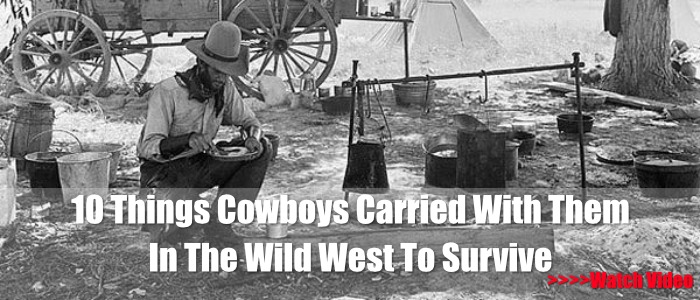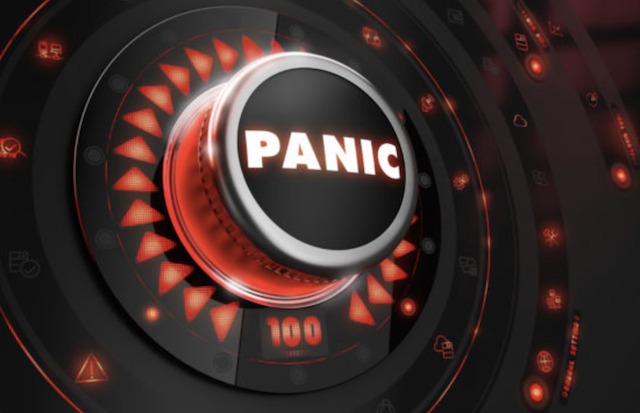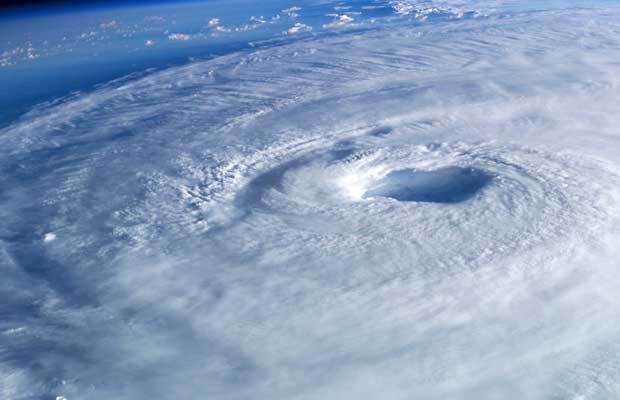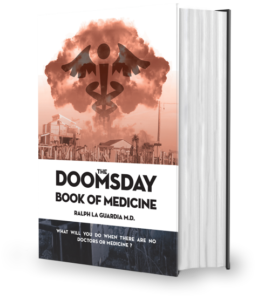12 Things That Won’t Lose Value In A Crisis
One of the most forgotten areas of prepping is financial preparedness. It’s as if we all think that whenever the brown stuff hits the air movement device, all debt and other financial concerns will disappear. While that might be true in a few situations, like an EMP, it’s not something we can count on. We’re just as likely to be faced with a scenario that causes us all to lose our incomes, while still being stuck with the mortgage on our homes and the loans on our cars.
Planning our finances as preppers can be challenging. We are faced with the problem of planning for the same things our non-prepping friends and neighbors do, while also planning for any number of possible disasters. So we have to have a plan for retirement; a plan to survive short-term disasters and a plan for surviving a TEOTWAWKI event.
This makes investing a real challenge. The things most people invest in, stocks and money market accounts, can’t be relied on in a post-disaster world. For that matter, trusting in them in a normal world is a bit dicey, as the stock market can always crash. But that doesn’t eliminate the need for investing; just like everyone else in the world, we need to have our investments in order, both for the good times and for the bad.
This really means investing in such a way as to protect ourselves in the event of a disaster. If we do that, then our investments should carry us through the good times as well. What we need, in addition to our stockpile of supplies, are things that we can invest in, which won’t lose their value, even in a post-disaster world. May I suggest the following…
Gold & Silver
This one is obvious. Perhaps the most classic investment of all time is precious metals, specifically gold and silver. During times of financial crisis, these metals always increase in value, even when everything else is dropping in value. In addition, precious metals are what people are likely to return to when needing some sort of money to trade with. So, as long as you have them, you can do business.
If you want to learn more you can check out this book. It provides specific and essential wealth-protecting ideas, techniques, and strategies.
In this regard, silver is actually better than gold, as its value is less. So when it comes time to barter, you’re not dealing with a one-ounce gold coin, which has a huge value. That might be useful when trying to make a major purchase, but not when trying to buy food.
Land
When I’m talking about the land here, I’m not talking about the typical way of investing in land. What I’m referring to is the land your home is sitting on or land that you can use for homesteading. One of the best investments you can make, especially for surviving a financial collapse, is ensuring that you own your home. That way, it can’t be taken away from you.
Granted, it is hard to pay off your home and the land it sits on; but if you will make an additional payment of say $100 each month, that money will go directly towards the principal on the loan, not the interest. I don’t have the exact figures at hand, but check it out; that could cut your 30 year mortgage down to 15 years or so.
Food
As preppers, we’re already stockpiling food. But we need to realize that our food is an investment too. Even in normal times, the cost of food is rising faster than the inflation rate. So, that food will increase in value faster than a savings account. Of course, in a time of crisis, it will be invaluable.
A Cottage Industry Business
Many major disaster scenarios are serious enough that they affect the world in which we live, as well as the economy. Rather than just investing in things, think about investing in the skills, knowledge, and tools to make a go of it, if your current job falls apart. You don’t want an internet business here, but rather something that you do with your hands.
Repair businesses could be an excellent choice, as they do extremely well after a financial collapse. Many of the old trades would do well after the loss of the grid. Ideally, you want some sort of business that will provide an income after as many types of disasters as possible. Start with the skills you currently have and look at what might work well for you.
Alcohol
People will hang on to their vices, feeding them, more than they will hold on to their most basic needs. in this, I think that Maslow’s Hierarchy of Needs is wrong. People will feed their vices, even at the cost of their lives. That’s why alcoholics and drug addicts spend the money they need for food and heat to feed their addictions.
But you don’t have to be an alcoholic to want alcohol. People drink and use drugs to escape their problems. So in a time of severe problems, many will trade away the food they need, just to get a drink. This makes alcohol one of the most powerful barter goods there is.
Tobacco
Tobacco is like alcohol, in that it is a vice. People smoke to deal with stress and in a post-disaster world, there will be plenty of stress. Having a stock of tobacco on hand could be extremely valuable, perhaps even more so than silver.
I wouldn’t recommend investing in cigarettes, as they can go stale. Rather, invest in raw tobacco and rolling papers. If people want to smoke, they’ll learn to roll their own.
Coffee
There are even more coffee addicts in the world than there are alcoholics and smokers. If you want something that people are going to be lusting after, willing to trade just about anything away for, this might be the golden ticket. Just about anyone is going to want coffee.
Whole beans will store better than ground coffee, even if you are keeping them in airtight containers. That means having a grinder on hand as well so that you can grind their coffee for them.
Ammunition
Some have said that ammunition will become the common coin in a post-disaster world, especially in a post-EMP world. There will clearly be shortages, even with all the people who have already built stockpiles of ammo. Concentrate on calibers that are useful for hunting and self-defense. Probably the most popular caliber for trade will be the .22LR.
Gasoline
Gasoline is difficult, as it doesn’t store well for prolonged periods of time. The more volatile hydrocarbons tend to evaporate off and there is some oxidation of other components of the gasoline. Adding a fuel stabilizer to the gas can extend the life, but then only to about a year.
If you can store your gasoline in sealed metal containers, it will last longer than it will in plastic gas cans. I’ve kept gasoline in a sealed steel barrel for over a year, without a problem. And that was without adding fuel stabilizers to it. Even so, I would consider gasoline only a short-term investment, as it won’t last forever. You’ll want to cash in on this investment faster than others.
Toilet Paper
There have always been alternatives to toilet paper. In the pioneering days, they used corn cobs and the Sears & Roebuck catalog. But for those of us who have grown up accustomed to toilet paper, making that switch will be difficult. I’d say that it will be even more difficult for women.
This one is a bit of a gamble, but I think that toilet paper will become highly valuable in a post-disaster world. You just might want a few extra cases, over and above what your family is going to use, that is.
Seed
If it comes down to long-term survival after a TEOTWAWKI event, probably one of the most important things to own will be seeds. Not only will you need it, so that you can plant a large vegetable garden and grow food for yourself and your family, but everyone else will need it too. They’re also going to need your knowledge about gardening so that they can get their gardens going and feed their families.
This is probably only a short-term investment but could have big returns. I say it’s short-term because once they grow their own crops, they can harvest the seed as well. So you shouldn’t have people coming back to you for the next growing season, looking for more seeds.
That concludes my mission for the day. Let me know what you think. If you find the time. Or something to add.
Have a good one!
Other Self-sufficiency and Preparedness solutions recommended for you:
The Lost Ways (The vital self-sufficiency lessons our great grand-fathers left us)
Survival MD (Knowledge to survive any medical crisis situation)
Backyard Liberty (Liberal’s hidden agenda: more than just your guns…)
Alive After the Fall (Build yourself the only unlimited water source you’ll ever need)
The Lost ways II (4 Important Forgotten Skills used by our Ancestors that can help you in any crisis)
The Patriot Privacy Kit (Secure your privacy in just 10 simple steps)
One of the most forgotten areas of prepping is financial preparedness. It’s as if we all think that whenever the brown stuff hits the air movement device, all debt and





